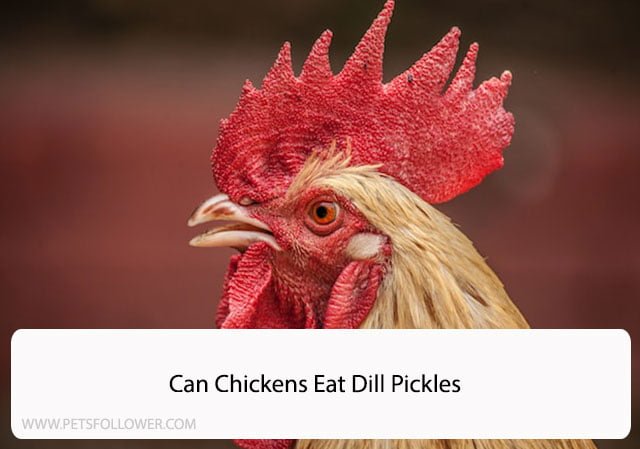Hey there, fellow chicken enthusiasts! If you’re like me, you probably enjoy treating your feathered friends to some special snacks now and then. But here’s a burning question: Can chickens eat dill pickles? Let’s dive into the world of poultry nutrition and pickles to find out if our clucking companions can enjoy this tangy delight without any fowl consequences!
Cluck, Cluck! Chickens and Their Appetite
First things first, let’s talk about chickens and their appetites. Our little egg-laying buddies are omnivores, which means they enjoy a balanced diet of grains, seeds, insects, and even some veggies and fruits. They’re not too picky about their food (pun intended), but it’s essential to keep their diet wholesome to keep them clucking happily!
What’s in a Dill Pickle?
Now, let’s unravel the mysteries of dill pickles! A dill pickle is a delicious cucumber soaked in a mixture of vinegar, water, dill, spices, and a pinch of salt. This concoction gives the pickle its unique tangy taste that makes our taste buds dance!
To Eat or Not to Eat: Are Dill Pickles Safe for Chickens?
Before you toss a pickle to your chicken, let’s get to the heart of the matter. Are dill pickles safe for our beloved cluckers? Well, it’s a bit of a mixed bag. While some of the pickle’s ingredients are harmless, there are a few that can ruffle their feathers.
The Lowdown on Salt
Chickens, like us, need a balanced amount of salt in their diet. But too much of it can cause problems! Dill pickles are quite salty, and excessive sodium intake can lead to dehydration and kidney issues in our feathered pals. So, a little nibble here and there is fine, but too many pickles are a no-no!
The Sour Truth about Vinegar
Vinegar, the star of the pickle show, is acidic. And while a tiny bit of acidity won’t bother chickens, a lot of it might leave their tummies feeling sour. Keep an eye out for any signs of digestive distress if your cluckers go on a vinegar spree!
A Spicy Surprise
Now, let’s talk about spices. Some spices can make a chicken’s heart sing, but others can give them a tummy ache! Spicy pickles might not sit well with your feathered friends, so be cautious about the heat level in the pickles you offer.
Beware of Toxic Ingredients
Here’s a cliffhanger for you: onions and garlic. These aromatic additions can be toxic to chickens and might turn your treat time into a tragedy. So, always double-check the ingredients before you hand out any pickles!
A Recipe for Safe Snacking
If you’re not ready to give up on the pickle party just yet, don’t worry! There are ways to make this snack safer for your feathered crew.
- Pickle Makeover: Consider making your own chicken-friendly pickles at home. Skip the harmful ingredients, and your cluckers will have a treat that won’t ruffle any feathers!
- Chop It Up: Instead of offering a whole pickle, chop it into bite-sized pieces. This will make it easier for your chickens to enjoy without overindulging.
- Moderation is Key: As with any treat, moderation is vital. Keep the pickle time a rare event, and your chickens will appreciate the occasional snack even more!
Fowl Play: Signs of Toxicity
Despite our best efforts, accidents can happen. If you suspect your chickens have gobbled up something they shouldn’t have, look out for these signs of toxicity:
- Lethargy: Are your chickens acting sluggish or uninterested in their usual clucky activities?
- Diarrhea: Keep an eye on their droppings. Watery and frequent poop might be a sign of trouble!
- Strange Behavior: If your feathered friends are acting out of the ordinary, it might be time to investigate.
Feathering It All Up
In conclusion, while chickens can have a taste of dill pickles every now and then, we must tread carefully. Too much salt, acidity, or spicy surprises can make our chickens feel less than peckish. So, if you’re planning a pickle party for your flock, remember the golden rule: moderation is the secret ingredient!
Remember, happy chickens mean tasty eggs and joyful clucks, so keep their diet balanced and treat them with love! Now go forth, armed with this newfound pickle knowledge, and keep your feathery pals clucking contentedly! Happy chicken keeping!
Disclaimer: The information provided in this article is for educational purposes only. Always consult a poultry expert or veterinarian for personalized advice regarding your chickens’ diet and health.
